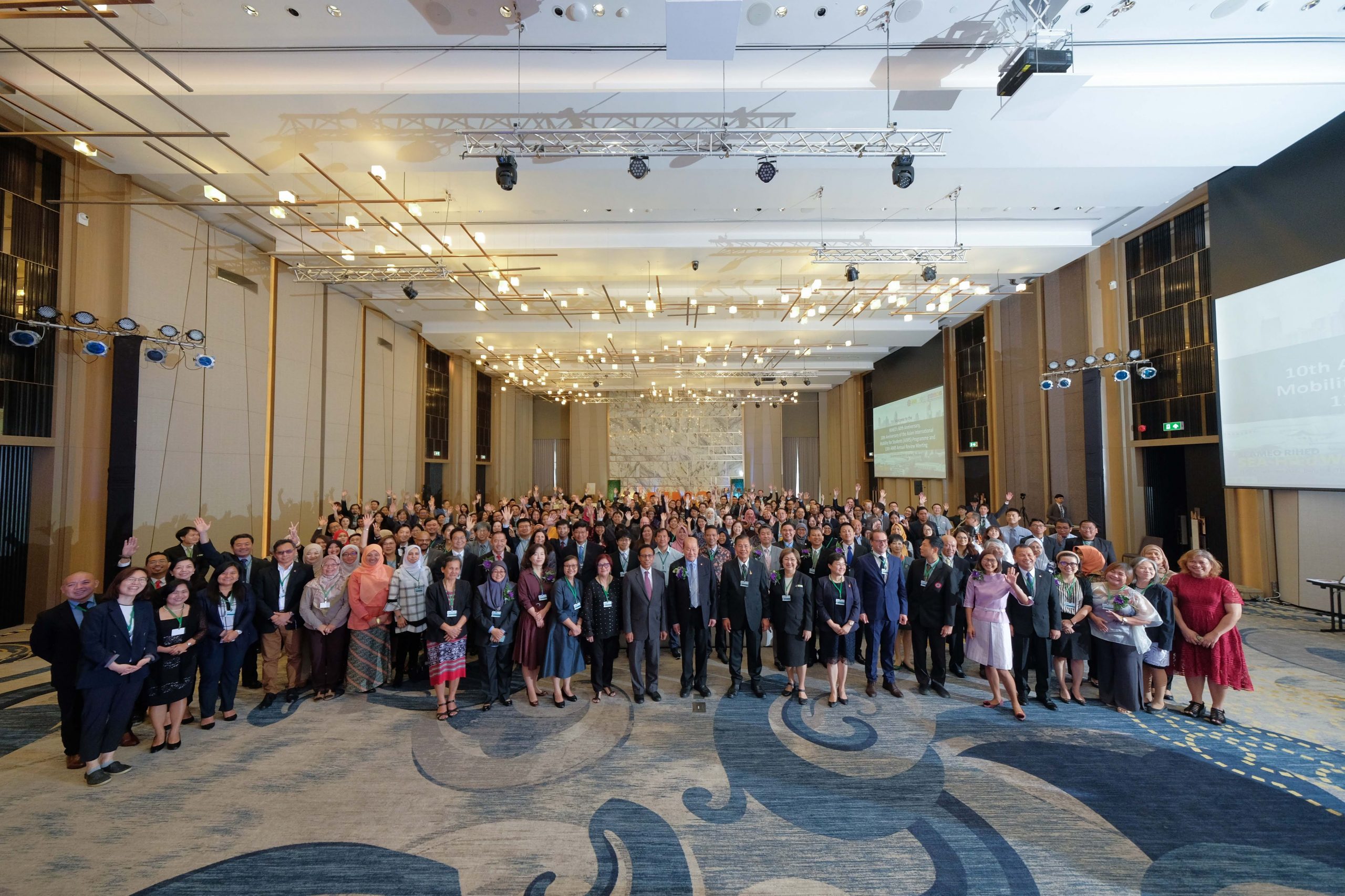How is it Managed?
The AIMS Programme is managed by SEAMEO RIHED, as Secretariat, and the AIMS Steering Committee, which represents participating governments and universities, as well as a robust network of national and institutional focal points across Member Countries. The Programme possesses Management Mechanisms in the form of annual meetings that facilitate the regional coordination of the Programme. The operation of the Programme takes place through close coordination and collaboration among all Stakeholders, ensuring that implementation is based on two underlying Programme Principles.

Management Mechanisms
The AIMS Programme operates at both national and regional levels. Member governments and their nominated universities work closely to support national implementation of the Programme. Regional coordination of the Programme is undertaken by SEAMEO RIHED and is ensured through the following two annual meetings that provide ongoing support to Programme management and implementation:
The Steering Committee Meeting
The AIMS Steering Committee serves as the decision-making body that guides the overall policy direction of the Programme. The Steering Committee is comprised of one government representative and one university representative from each Member Country who are officially nominated by the education ministry or an equivalent national authority responsible for higher education. Chaired by the Director of SEAMEO RIHED, the Steering Committee screens and resolves policy issues arising or raised by member governments or universities to enhance the effectiveness and efficiency of the Programme implementation.
The Annual Review Meeting
The Annual Review Meeting is another mechanism to facilitate Programme management at the regional level. Coordinated by SEAMEO RIHED, the Annual Review Meeting provides an opportunity for all stakeholders of the Programme, including government officials, university executives, faculty staff and International Relations Officers as well as students and alumni to review the Programme’s progress, discuss operational challenges and obstacles identified in different national contexts and reflect on the future development of the Programme. Any significant matters raised in the Annual Review Meeting are tabled at the following Steering Committee Meeting to scrutinise potential policy solutions.
At the Annual Review Meeting, member governments share updates and progress on national implementation of the Programme including relevant policy changes that may affect the landscape of student mobility and policy recommendations for the Programme. On the other hand, the Meeting serves as a common platform for member universities not only to advance existing collaboration with peer universities in the Programme, but also to explore possibilities for new partnerships through networking. Furthermore, it marks an occasion where member universities can exchange knowledge and experiences to improve their curricula and enhance course alignment while also utilising the opportunity to discuss strategies for greater academic collaboration among member universities.
Stakeholders
The AIMS Programme is a multilateral platform where different stakeholders play their respective roles in the management of the Programme across varying operational levels. Learn more about the different stakeholders below:
Principles
The following core principles are among what makes AIMS a unique Programme and underpin its management and operation:
 Since the initiation of the AIMS Programme, SEAMEO RIHED has continued to serve as Secretariat of AIMS, ensuring the smooth operation of the Programme at the regional level. SEAMEO RIHED administers the Programme by maintaining a network of dedicated national and institutional focal points, co-organising the Annual Review Meeting and Steering Committee Meeting and facilitating regional consultation among Member Countries. The SEAMEO RIHED Centre Director also serves as Chair of the Steering Committee Meeting and undertakes an executive role in formulating Programme policies with Steering Committee Members.
Since the initiation of the AIMS Programme, SEAMEO RIHED has continued to serve as Secretariat of AIMS, ensuring the smooth operation of the Programme at the regional level. SEAMEO RIHED administers the Programme by maintaining a network of dedicated national and institutional focal points, co-organising the Annual Review Meeting and Steering Committee Meeting and facilitating regional consultation among Member Countries. The SEAMEO RIHED Centre Director also serves as Chair of the Steering Committee Meeting and undertakes an executive role in formulating Programme policies with Steering Committee Members.
 Universities provide a variety of support for inbound and outbound students participating in the AIMS Programme in all stages of their exchange. They communicate a range of essential information to current AIMS students as well as those who are interested in joining the Programme, including details of application procedures, selection criteria, course information, financial supports available to students, visa arrangement and accommodation during the exchange.
Universities provide a variety of support for inbound and outbound students participating in the AIMS Programme in all stages of their exchange. They communicate a range of essential information to current AIMS students as well as those who are interested in joining the Programme, including details of application procedures, selection criteria, course information, financial supports available to students, visa arrangement and accommodation during the exchange. As their voices matter to overall Programme implementation, the Annual Review Meeting invites students and alumni to share their insights into their experiences abroad. In this way, the Programme continues to engage with students even after their exchange period ends and their reflections as alumni remain crucial in making AIMS even more beneficial to future participating students.
As their voices matter to overall Programme implementation, the Annual Review Meeting invites students and alumni to share their insights into their experiences abroad. In this way, the Programme continues to engage with students even after their exchange period ends and their reflections as alumni remain crucial in making AIMS even more beneficial to future participating students.